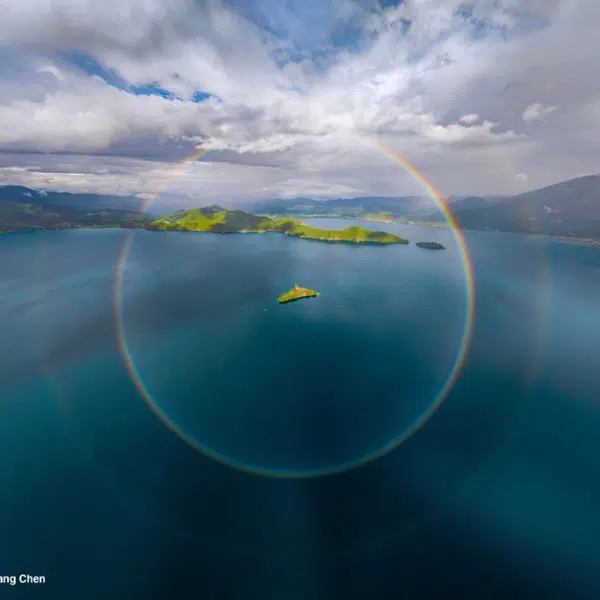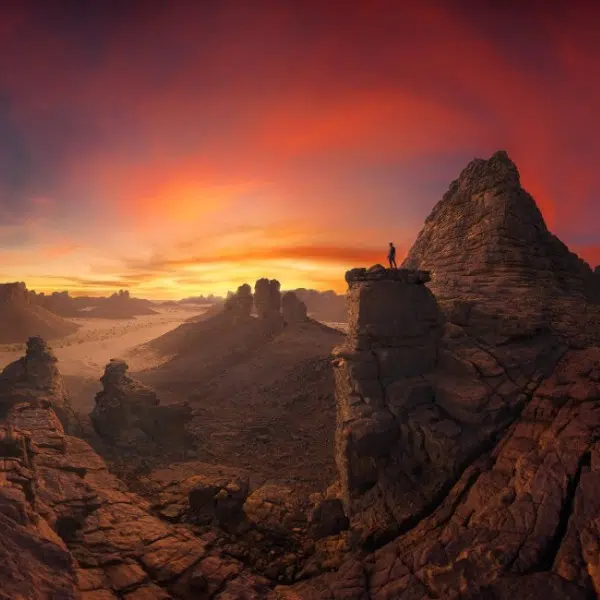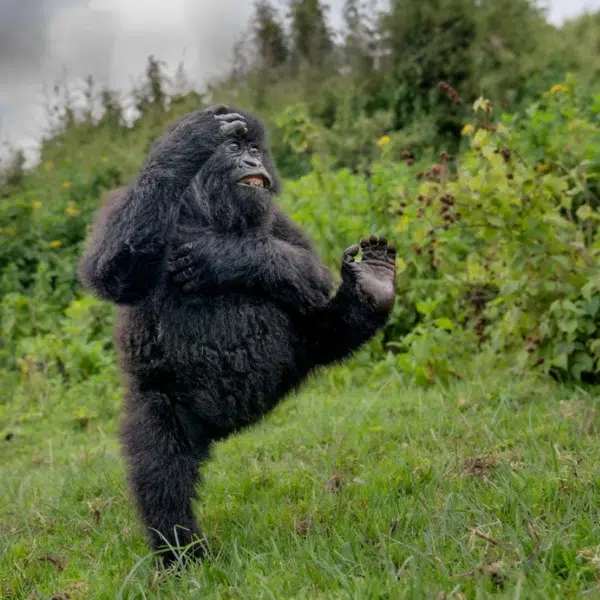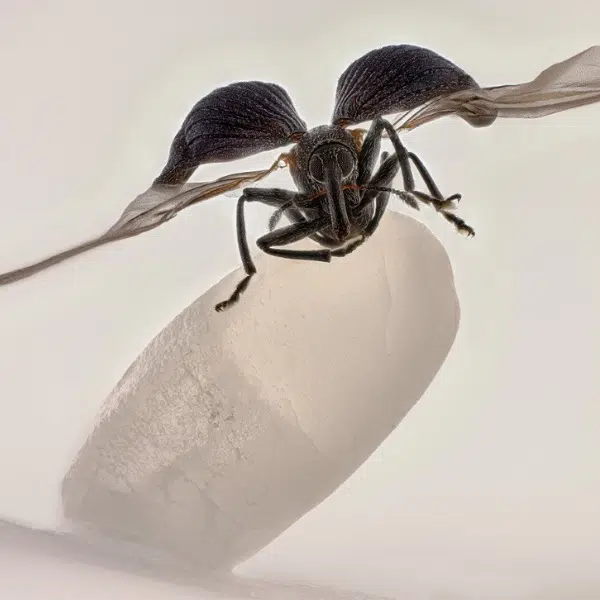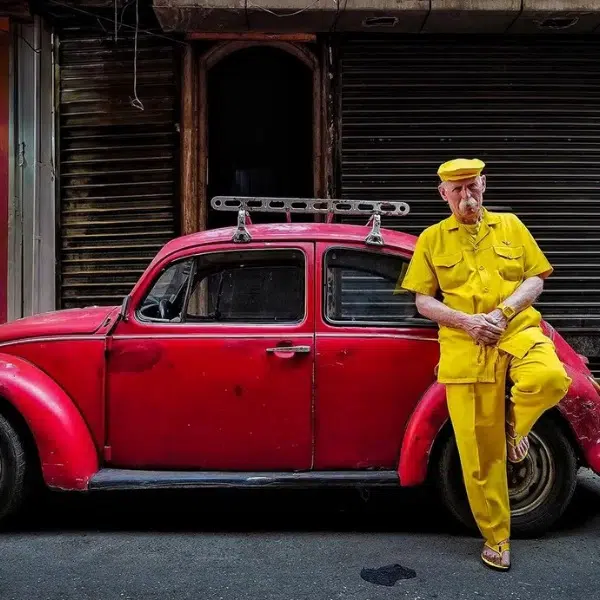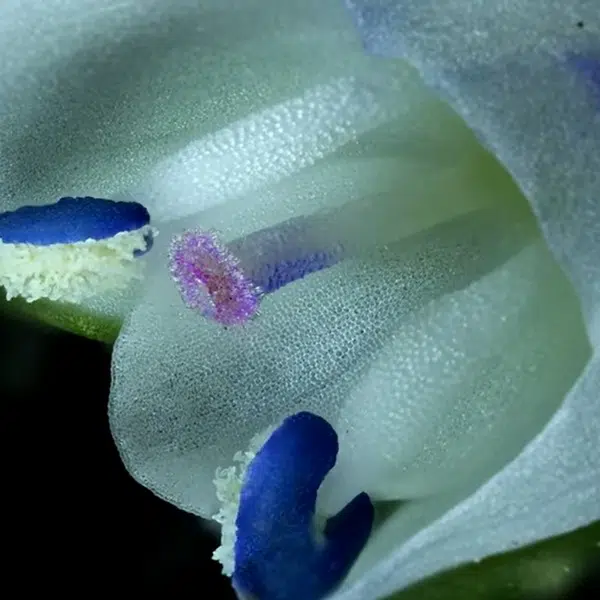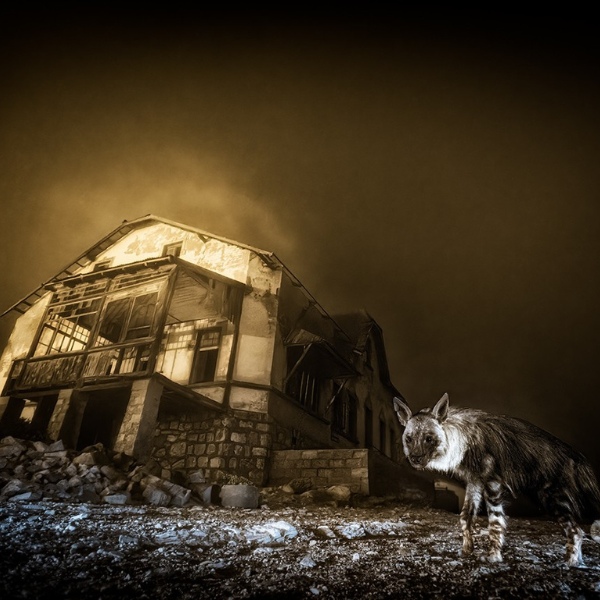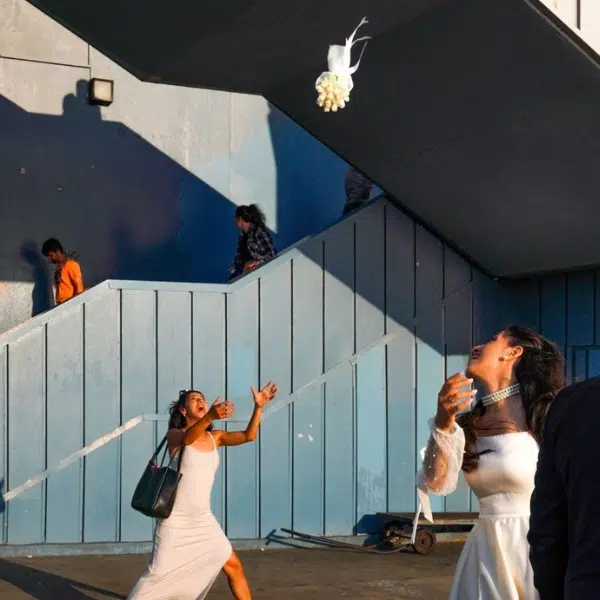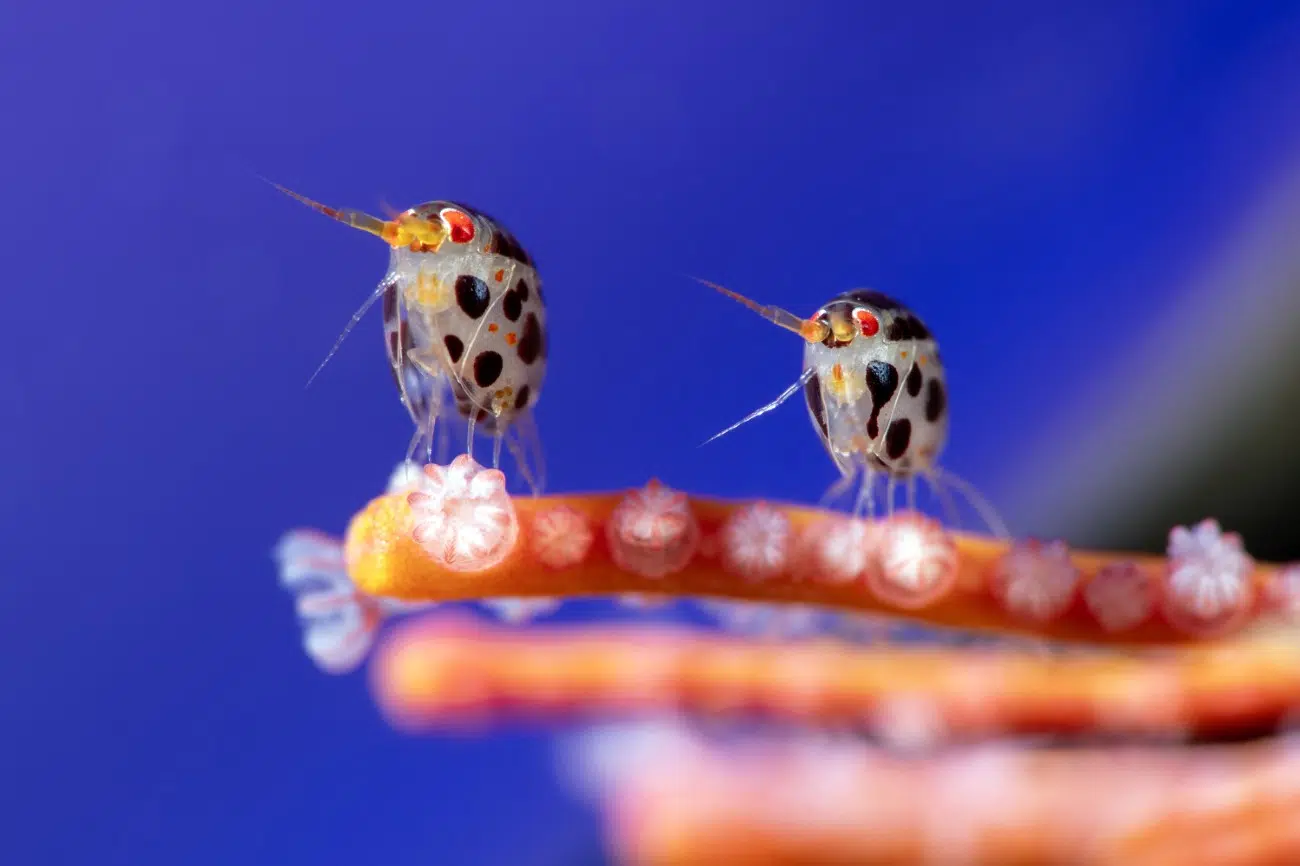
Yury Ivanov, Overall Winner. Location: Indonesia
Two amphipods from the Cyproideidae family, each only measuring around 3 millimeters in body length, rest on a coral. Commonly called ‘ladybugs of the sea’, these tiny creatures display striking coloration and symmetry. “It required a lot of patience and precision to compose and light the shot properly,” says Ivanov. “The result reveals an intimate glimpse of underwater life that is often overlooked.”
A colorful macro photo of two tiny “ladybugs of the sea” won Bali-based photographer Yury Ivanov the title of Ocean Photographer of the Year 2025. The contest, organized by Oceanographic Magazine and Blancpain, is always a delightful way to view different perspectives on the sea, and Ivanov’s win exemplifies how much there is to see.
The image, which was taken at a dive site in Bali, won out over 15,000 other entries. Ivanov, an award-winning photographer and marine life expert, was thrilled by his win and what it signifies. “Winning Ocean Photographer of the Year is an incredible feeling; I’m deeply grateful for the recognition,” he says. “This award is not just about one image, but about celebrating the ocean itself—its fragility, its diversity, and its extraordinary power to inspire us.”
Jialing Cai, who was the 2023 Ocean Photographer of the Year, was another big winner this year. The Chinese photographer won the Female Fifty Fathoms award, which celebrates women who are pioneers in the world of ocean photography. This special honor required Cai to be nominated by her peers and represents a significant achievement.
Across the board, the overall and category winners deserve admiration for their ability to capture the world at sea. Both the good and the bad, represented by gravity-defying surfers and sharks caught in fishing nets, warrant our attention, something that the organizers of the contest are keenly aware of.
“The winners of this year’s Ocean Photographer of the Year remind us that photography is more than art—it is a bridge. Their images connect people to the ocean in ways words cannot, reaching those who may never dive in it or paddle on it, but whose lives are deeply intertwined with it. In a time of planetary urgency, this year’s photographers invite the world to see, feel, and ultimately care. Their work is critical, because we protect what we understand,” says Will Harrison, director of Ocean Photographer of the Year.
Scroll down to see more of our favorite winners, and then head over to the Oceanographic Magazine website to see the full finalist gallery.
Premier underwater photography contest, Ocean Photographer of the Year, has just announced its 2025 winners.
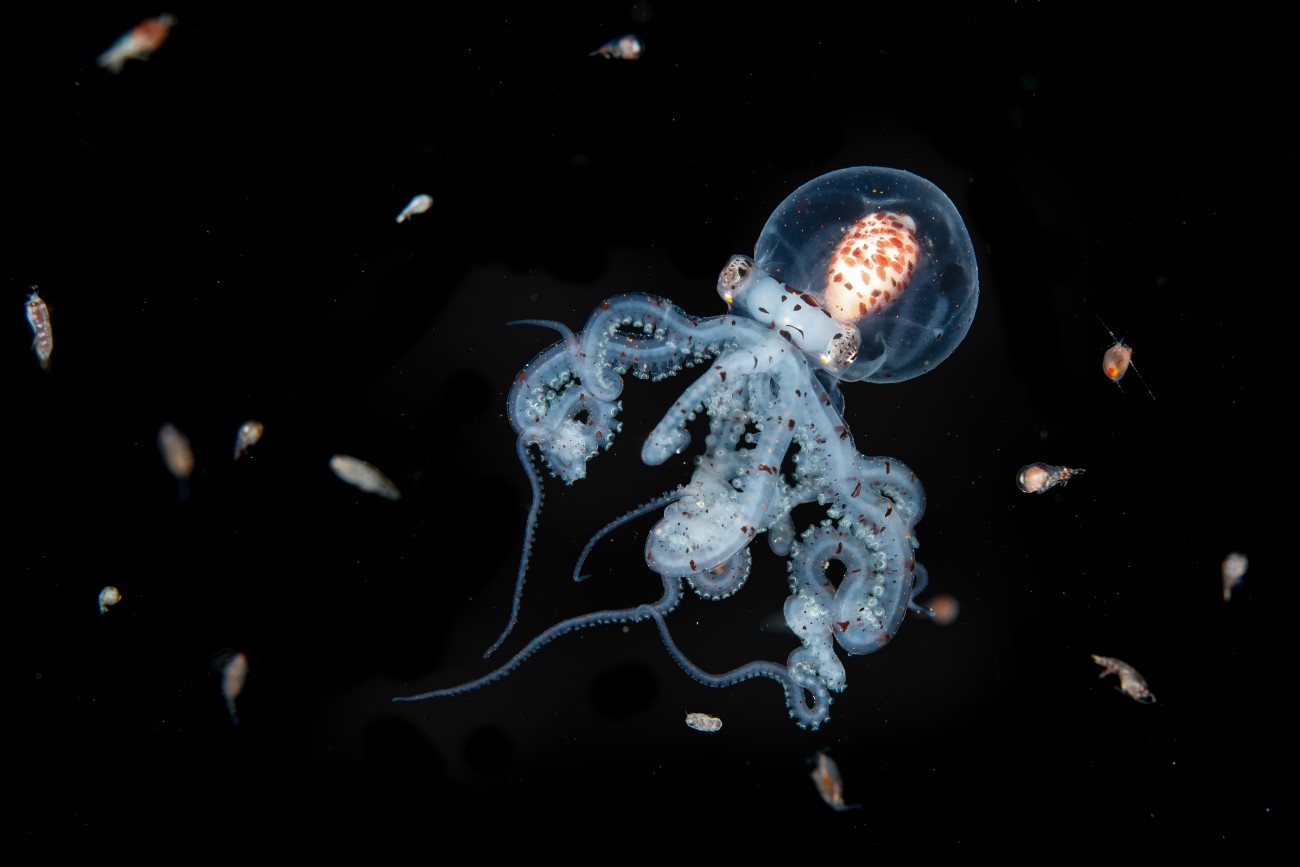
Jialing Cai, Winner, Female Fifty Fathoms. Location: Anilao, Philippines
Almost ethereal in its translucency, a juvenile wunderpus octopus is surrounded by a variety of small zooplankton, such as larval shrimps, crabs and worms.
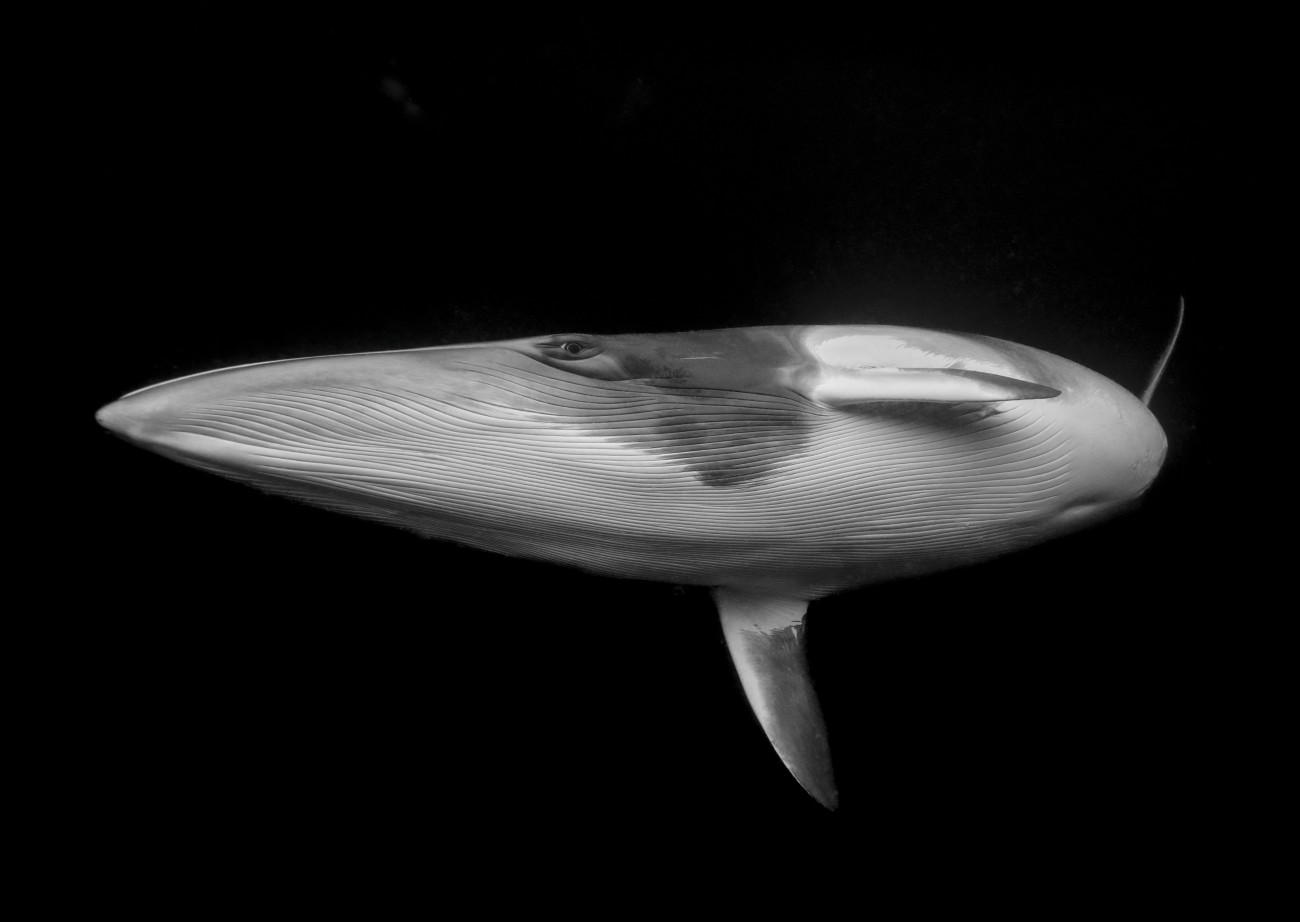
Marcia Riederer, Winner, Fine Art. Location: Australia
A dwarf minke whale curiously eyes the photographer. “These whales are known to visit the northern Great Barrier Reef during the winter, making it the only known predictable aggregation of the species in the world,” says Riederer.
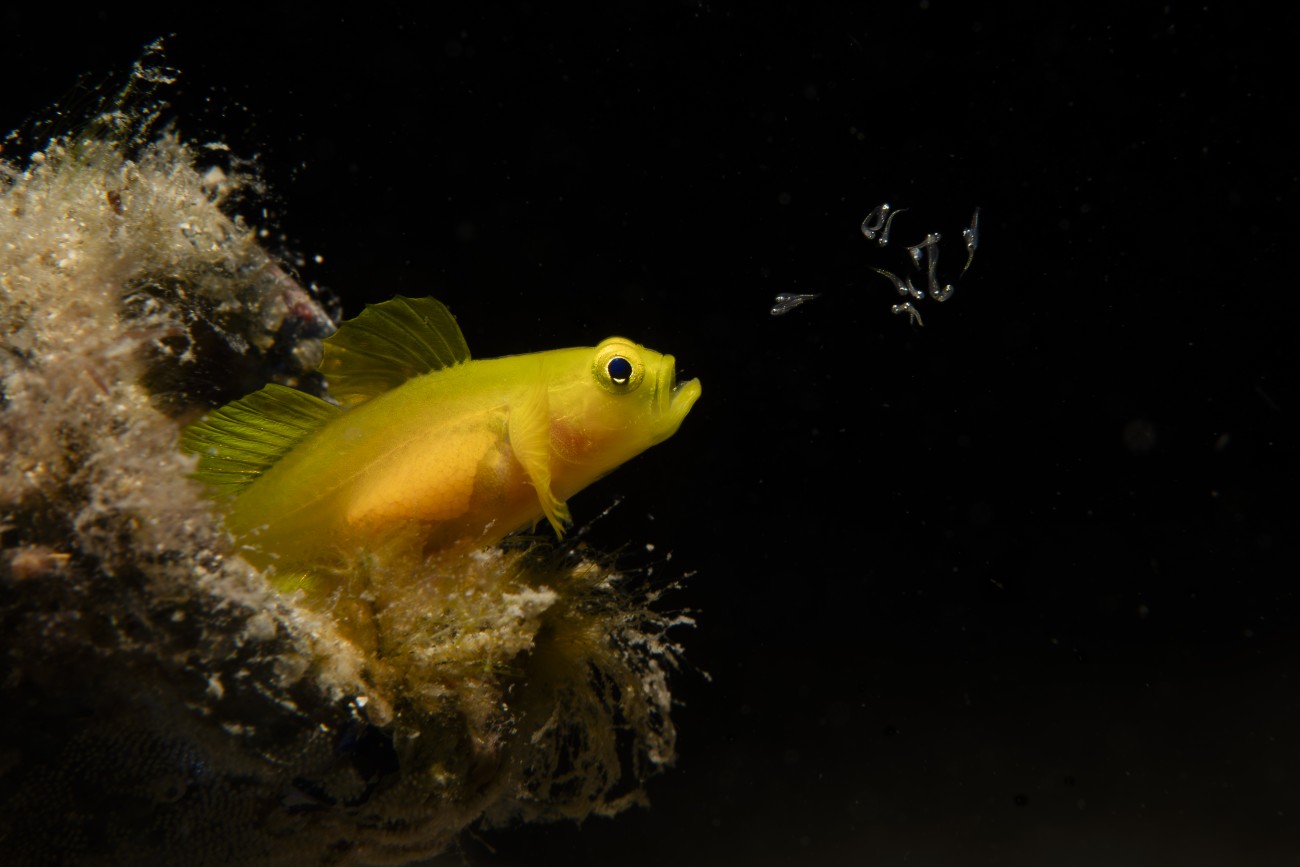
Takumi Oyama, Winner, Wildlife. Location: Japan
A female yellow pygmy goby releases newly hatched larvae into the water column from her mouth. “In gobiid fishes, male parental care is common. In the yellow pigmy goby, however, the females also participate in parental hatching care,” says Oyama.
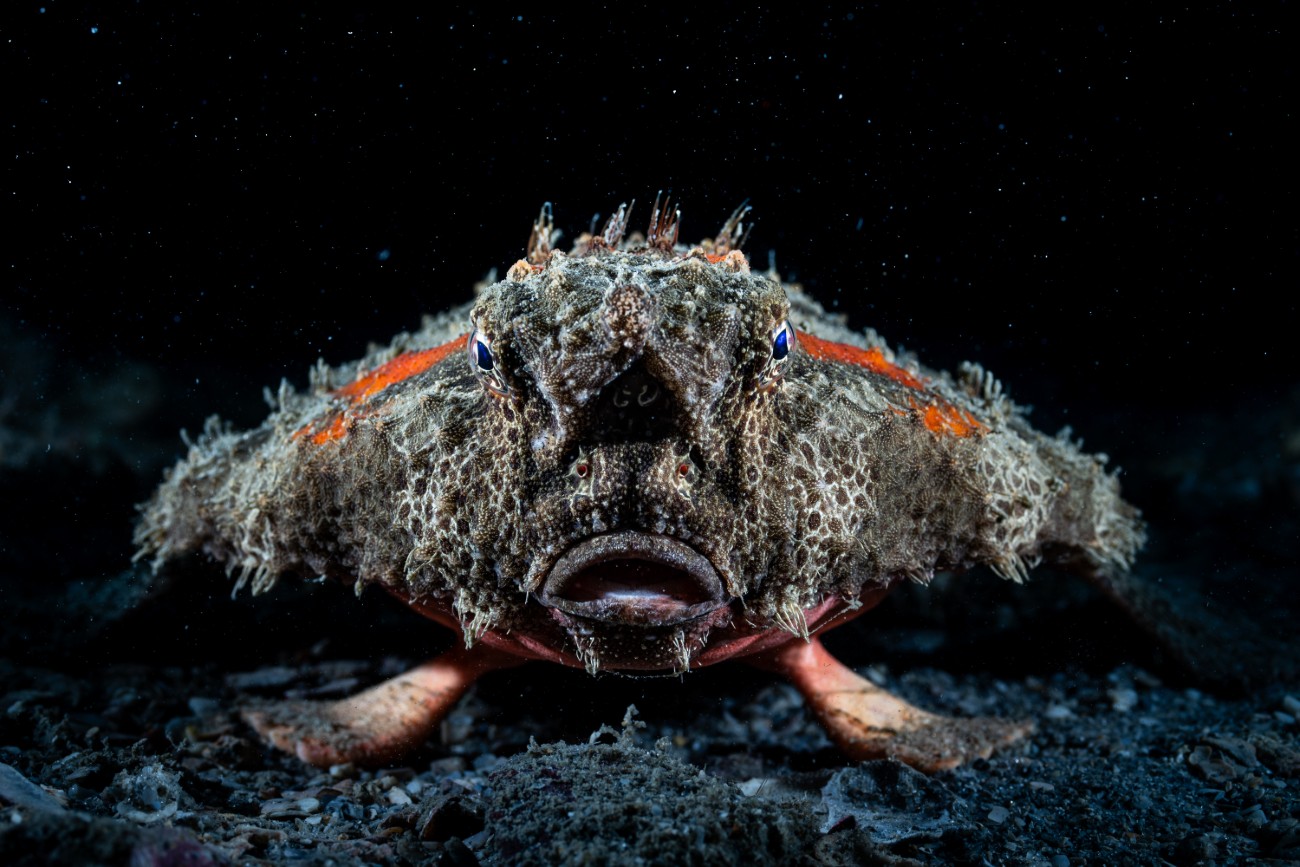
Matthew Sullivan, Winner, Portfolio. Location: Florida, USA
A batfish lies on the seabed. “Polka-dot batfish are a common sight in Florida waters, but they are notoriously difficult to photograph,” says Sullivan. “After years of trying, this individual seemed relaxed, and I was able to finally take a head-on portrait.”
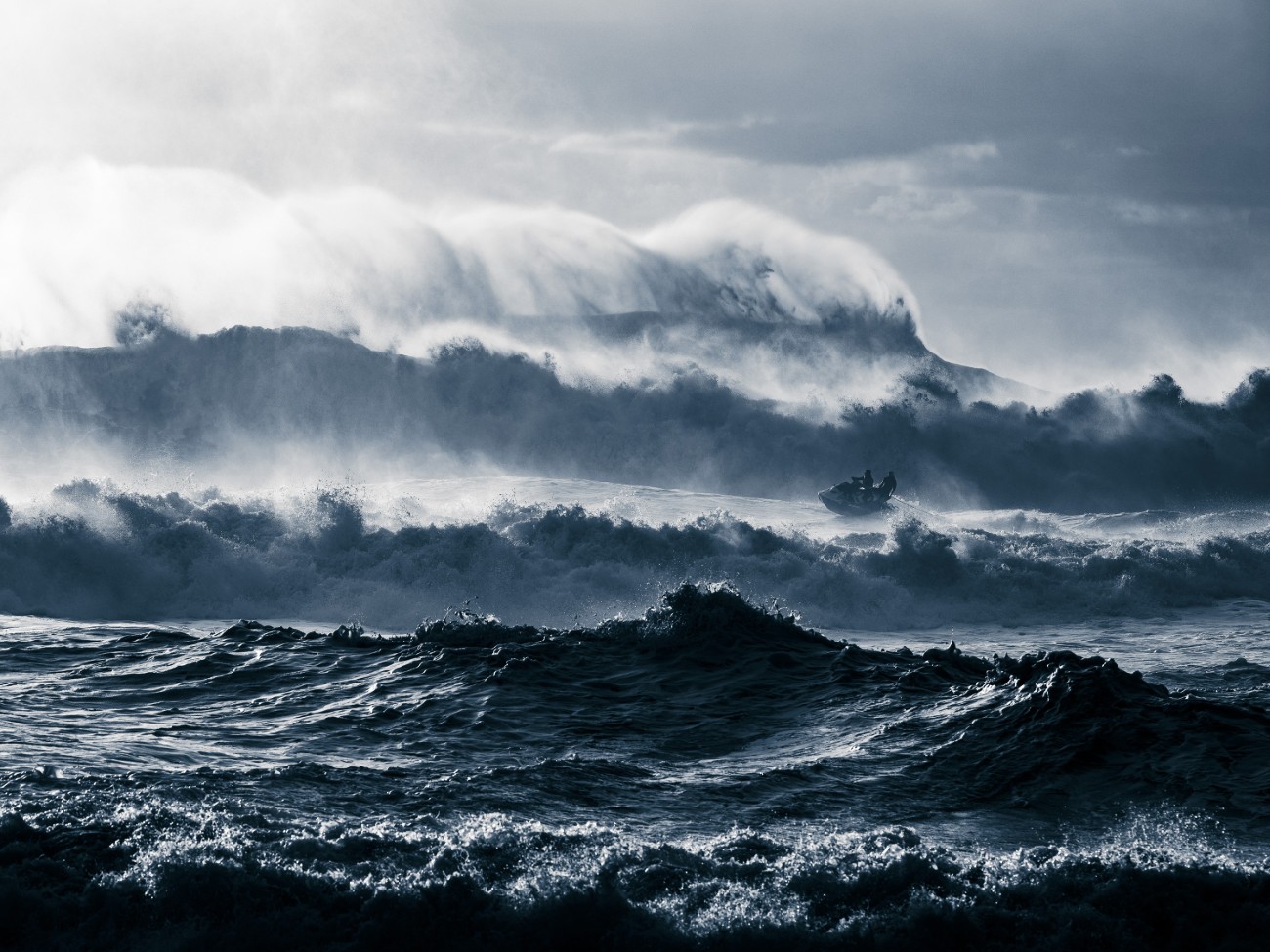
Ben Thouard, Winner, Adventure. Location: Portugal
A rough Nazaré day. “The wind came from the north which made the surf tricky,” says Thouard. “Not many surfers went out and it was hard to shoot anything because of the big sets but eventually, this moment occured.”
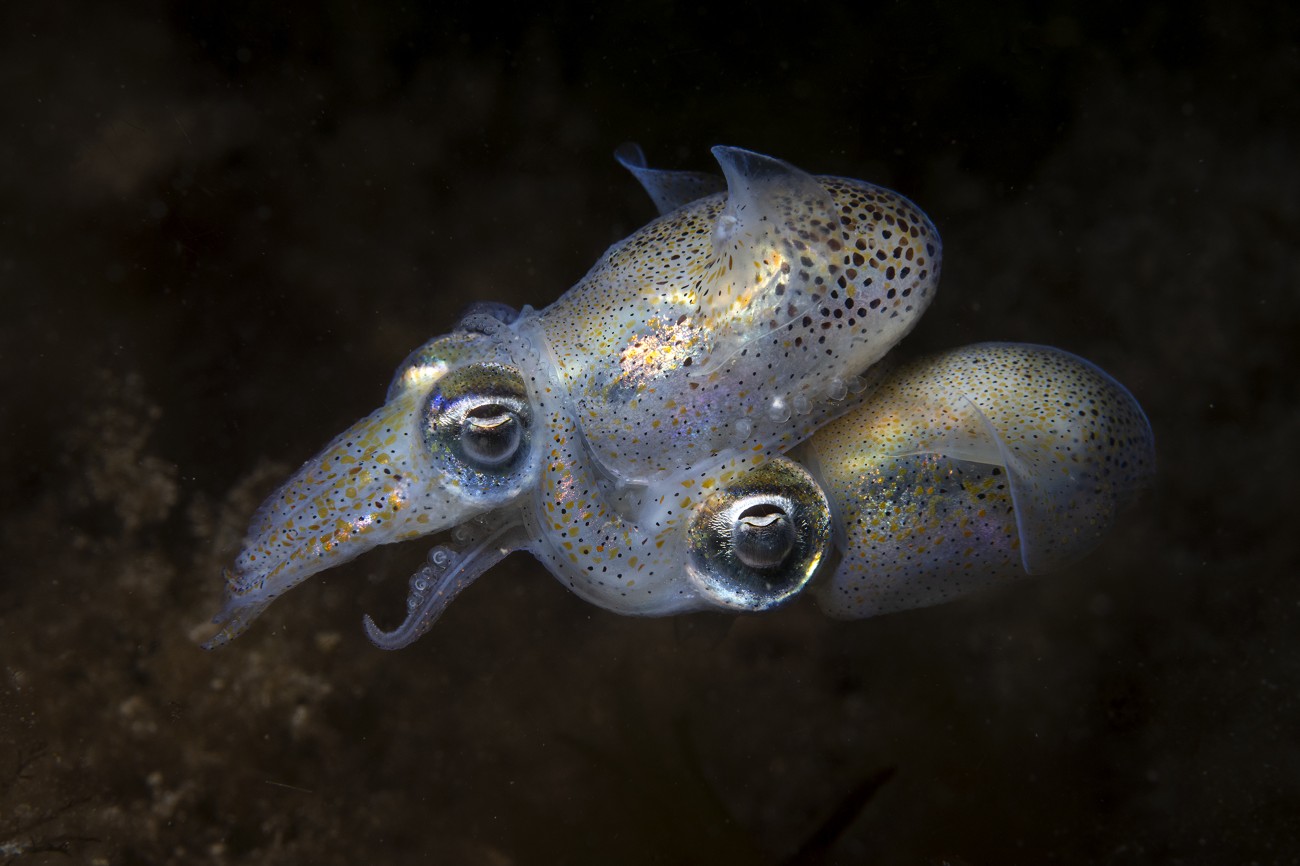
Aaron Sanders, Winner, Young. Location: United Kingdom
Under the cover of night, two tiny bobtail squid engage in an intimate display, their arms intertwined as they mate on the seabed. “Waves of color rippled across their bodies as chromatophores pulsed in a mesmerizing rhythm,” says Sanders.
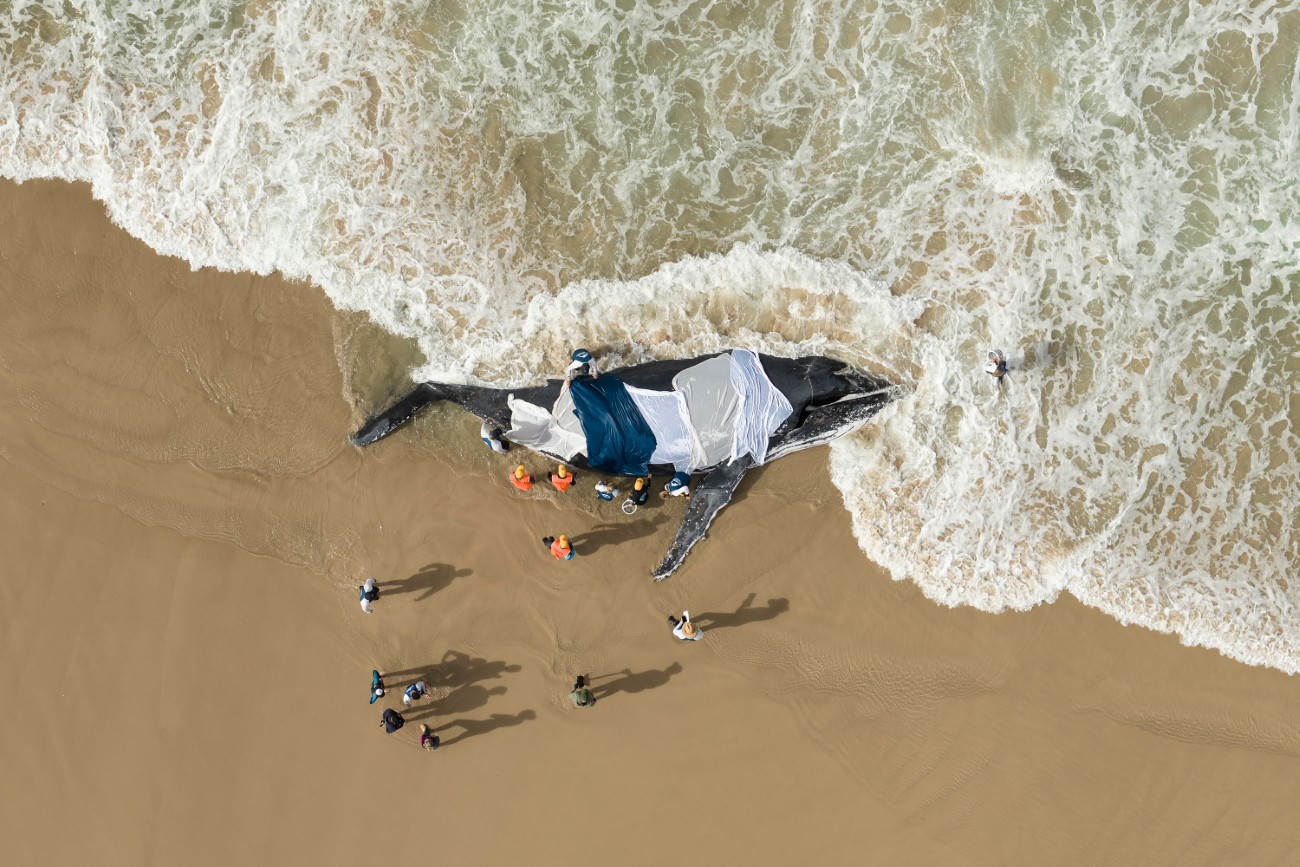
Craig Parry, Winner, Human Connection. Location: Australia
People try to rescue a stranded humpback whale. “For 15 hours, they worked tirelessly,” says Parry. “Sadly, she could not be saved, but the compassion shown is powerful reminder of what can be achieved when people come together.”
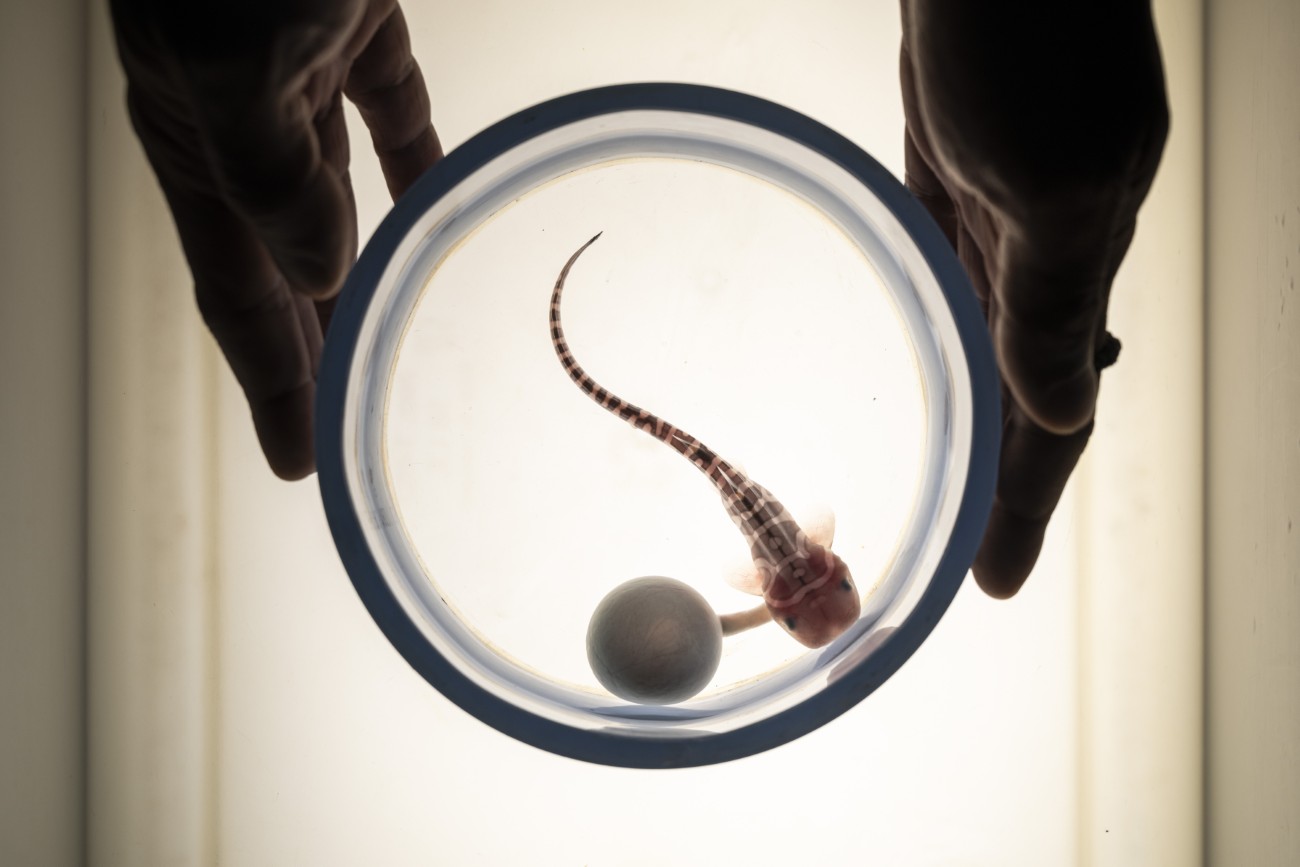
Sirachai Arunrugstichai, Winner, Conservation (Hope). Location: Thailand
An aquarist holds an early-stage embryo of an Indo-Pacific leopard shark, its egg case removed for a rearing experiment at Aquaria Phuket. “Since 2023, the aquarium’s breeding program has produced over 40 pups of this Endangered species,” says Arunrugstichai.
Over 15,000 images were entered into the annual photo contest.
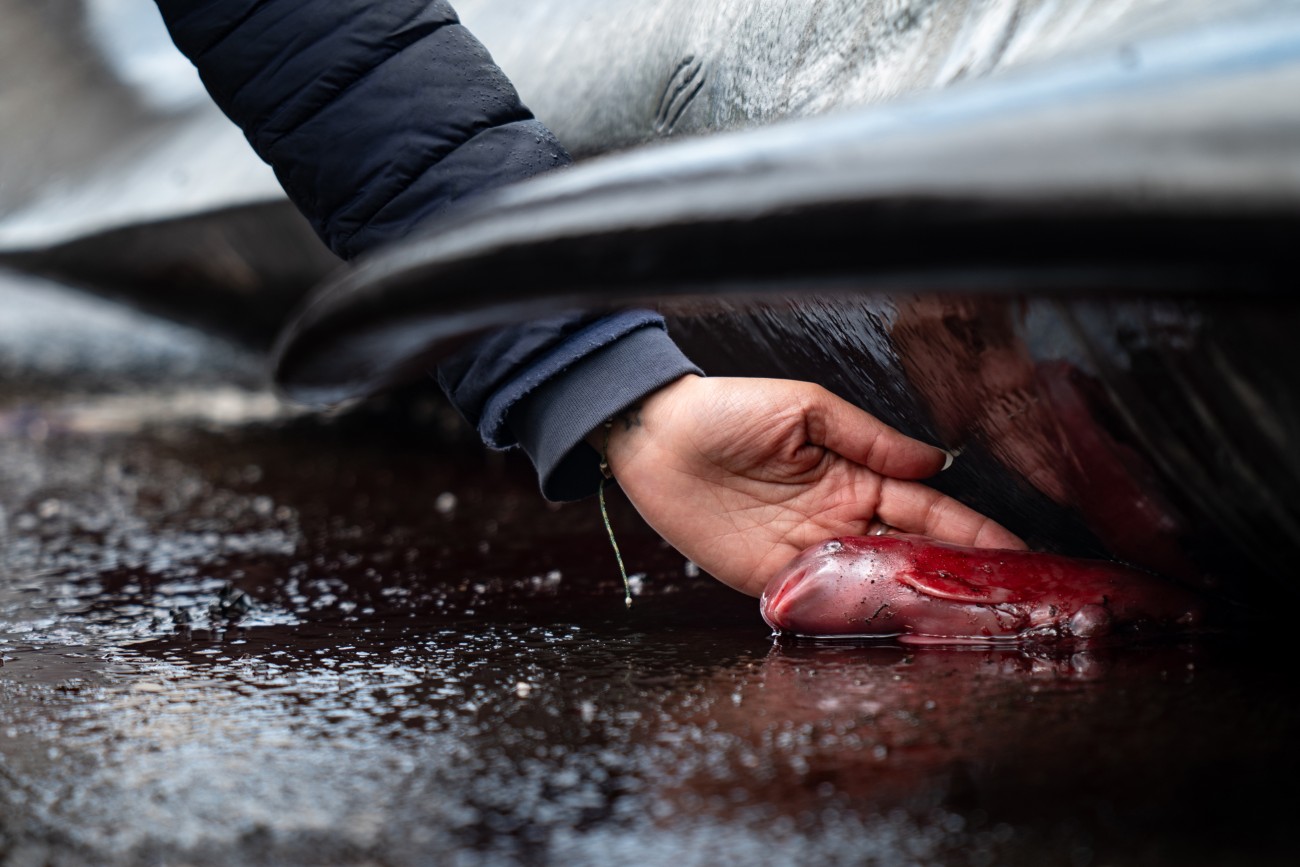
Hugo Bret, Winner, Conservation (Impact). Location: Faroe Islands
A long-finned pilot whale foetus lies lifeless under its mother’s corpse in the Faroe Islands. “Each year, more than 1,000 cetaceans are killed during grindadráp, the slaughter of entire whale groups, including juveniles and pregnant females,” says Bret.
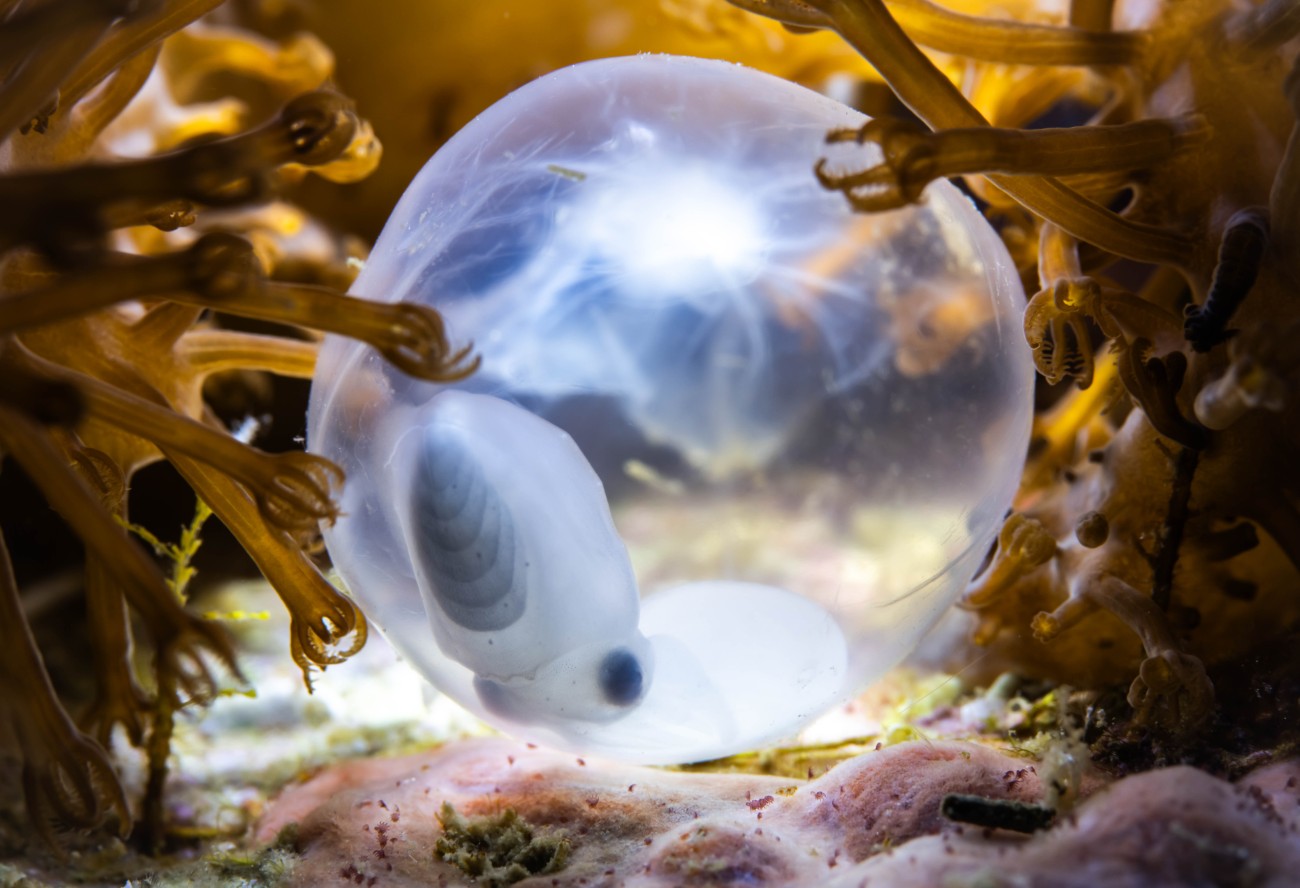
László Földi, Runner-Up, Conservation (Hope). Location: Philippines
A translucent squid egg, measuring only two or three centimeters in diameter, reveals its inhabitant. “This image was taken on an early morning dive at Gato Island,” says Földi. “I have always been amazed by the variety of underwater life found here.”
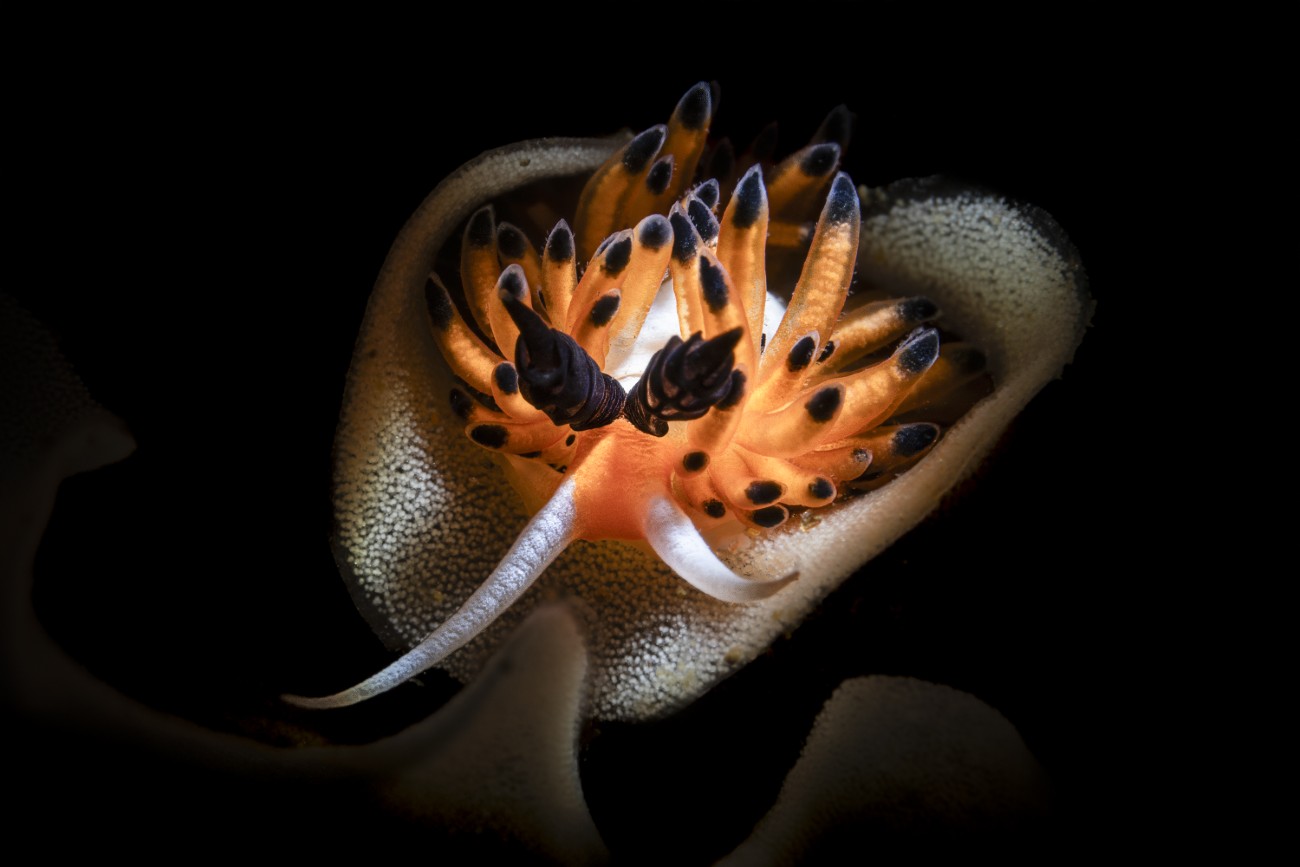
Giancarlo Mazarese, Runner-Up, Portfolio. Location: Anilao, Philippines
“Favorinus tsuruganus feeds on the eggs of another gastropod species, demonstrating a canny ability to obtain nutrients efficiently while minimising foraging effort,” says Mazarese. By preying on eggs, the nudibranch regulates local gastropod populations and influences the dynamics of the reef.

Alexis Chappuis, Third Place, Wildlife. Location: Indonesia
Skeleton shrimps colonize a gorgonian coral. “As these crustaceans feed on plankton, they usually don’t impact their host,” says Chappuis. “In this case, there were so many of them that they most likely caused the gorgonian to retract its polyps.”

Yifan Ling, Runner-Up, Human Connection. Location: USA
A breaching orca. “On April 1, 2024, more than 20 Bigg’s orcas entered Puget Sound,” says Ling. “A male orca suddenly began breaching and I captured a shot that reflects the connection between the orcas and land-based whale watchers.”
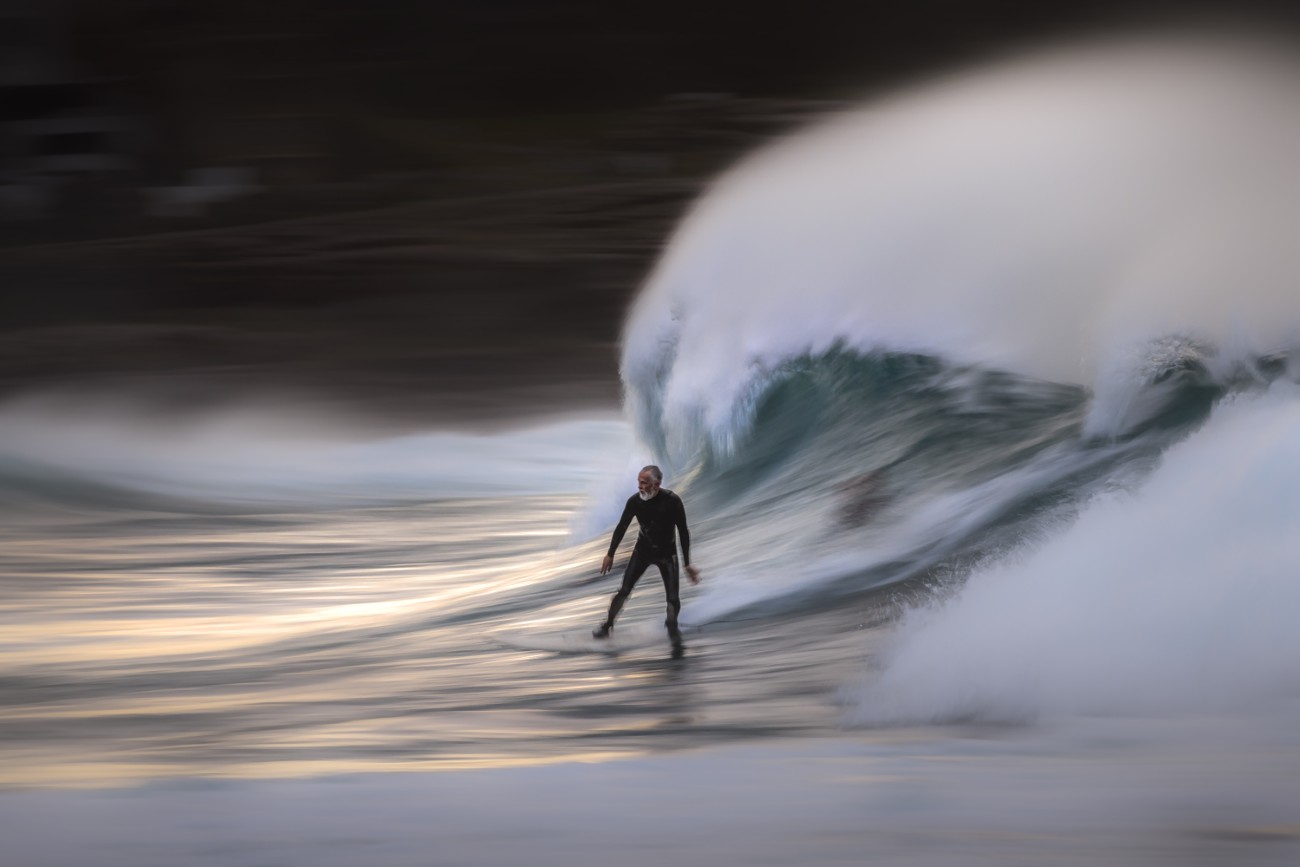
Gergo Rugli, Runner-Up, Adventure. Location: Australia
A surfer enjoys a crisp winter morning at Bronte Beach. “This image was the result of a rare alignment – a powerful southerly swell met strong offshore winds under soft morning light,” says Rugli.
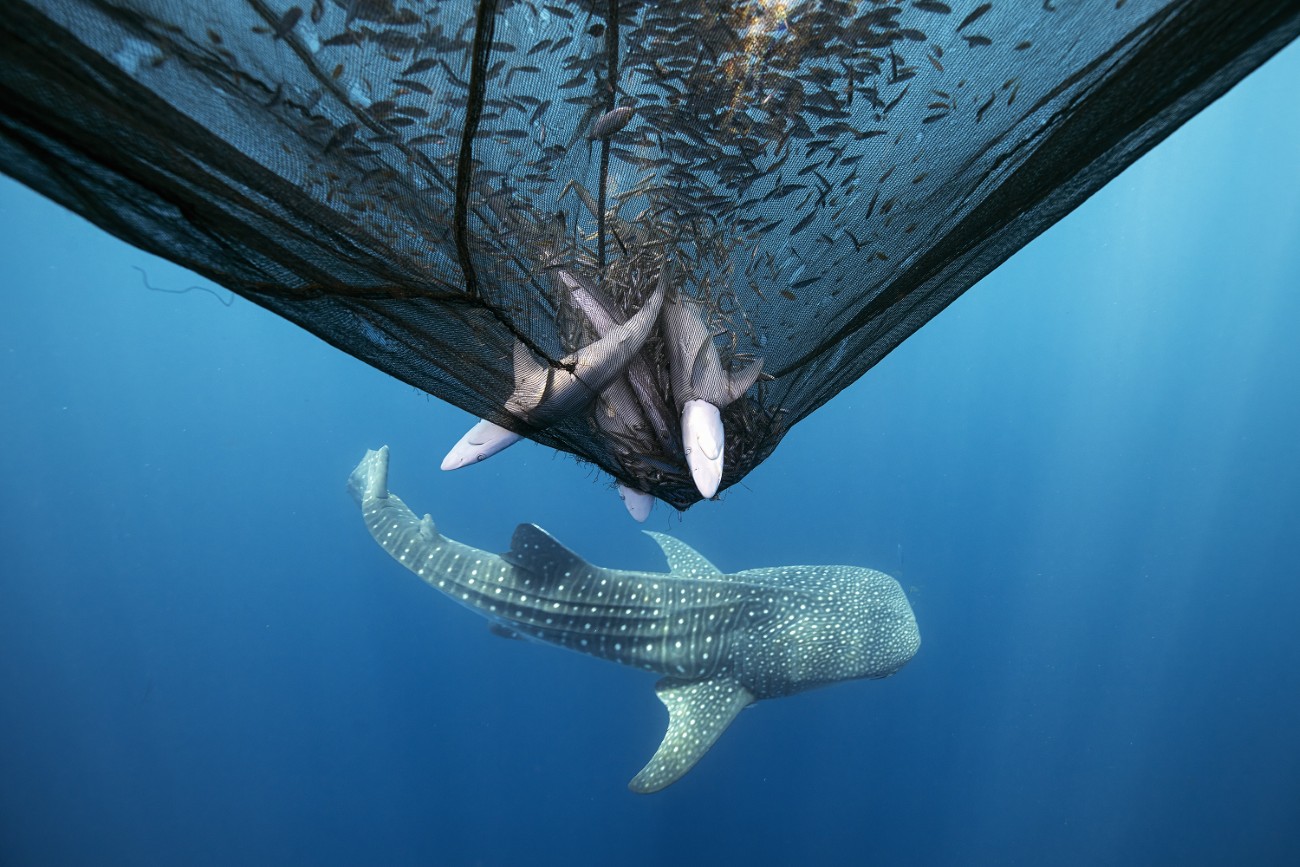
Daniel Flormann, Runner-Up, Conservation (Impact). Location: Indonesia
Dead sharks in an anchovy fishing net. “More than 100 million sharks are killed annually – many as accidental bycatch,” says Flormann. “The deceased sharks in the net and the whale shark’s injured caudal fin both tell stories of human impact.”
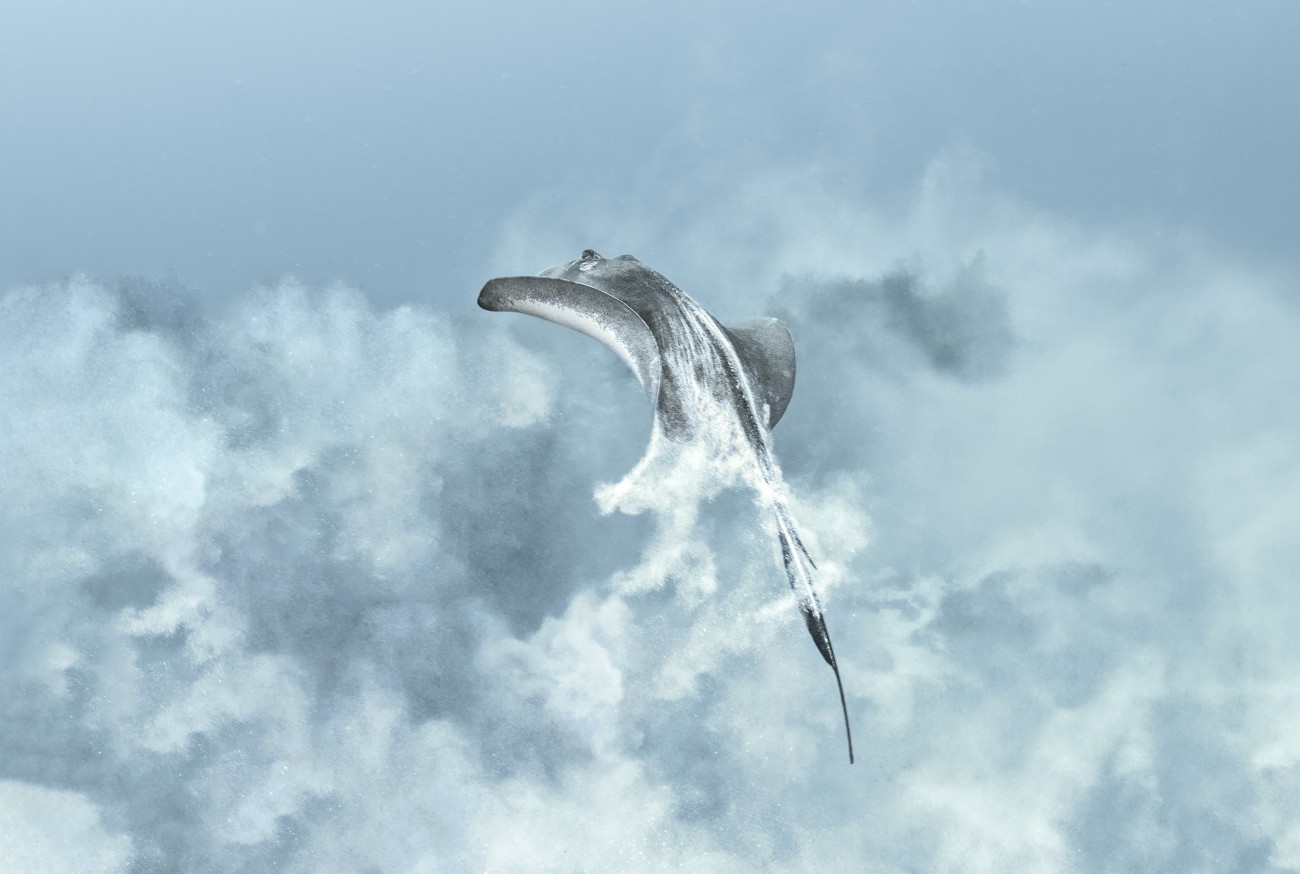
Ysabela Coll, Third Place, Fine Art. Location: Mexico
With a powerful sweep of its pectoral fins, a stingray vanishes into the blue, leaving behind a swirling cloud of sand. “This dramatic burst isn’t just beautiful – it’s a survival tactic,” says Coll.
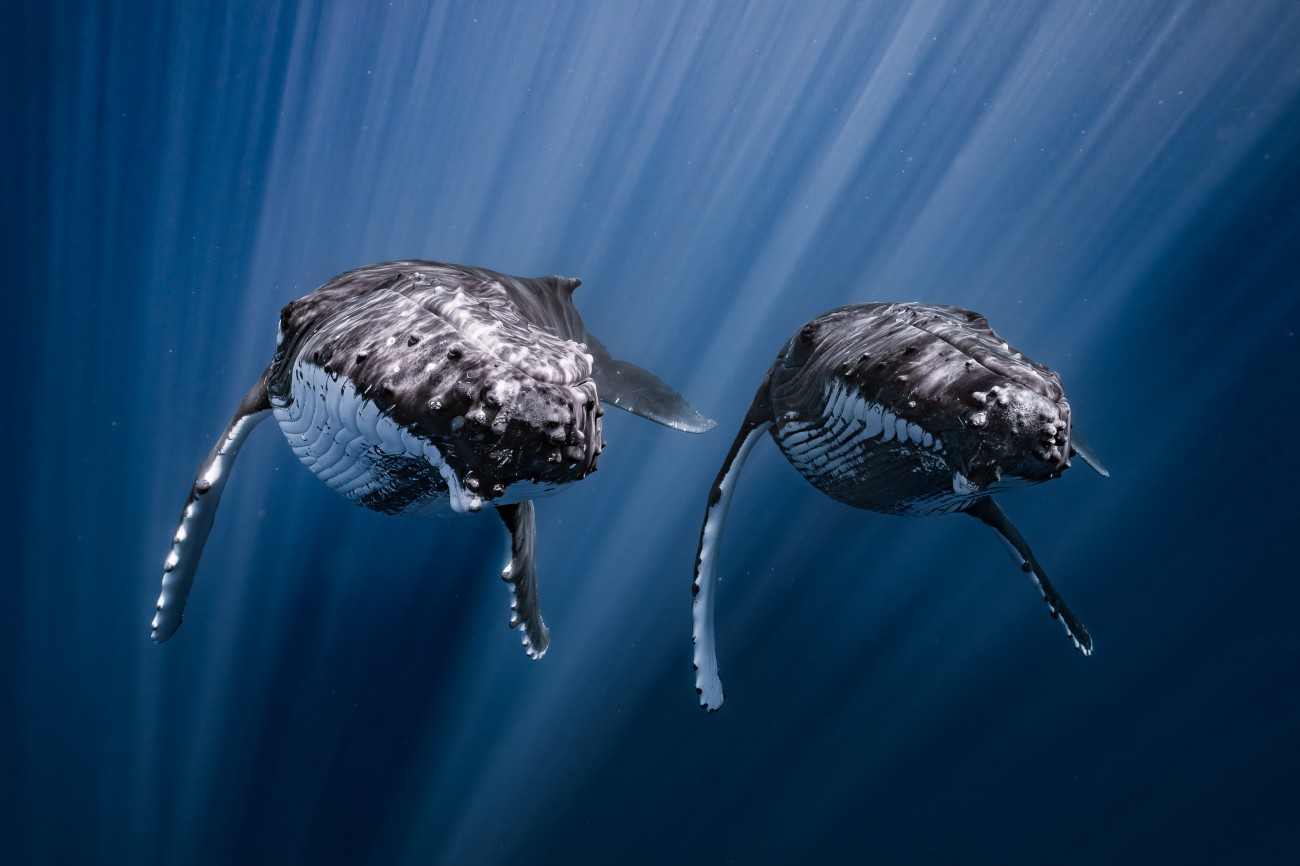
Yuka Takahashi, Third Place, Young. Location: French Polynesia
A pair of humpback whales. “These two humpback whales are always seen together, and I was fortunate to capture this rare moment of synchronicity,” says Takahashi. “This photo reflects the strong bond between them while revealing their playful personalities.”
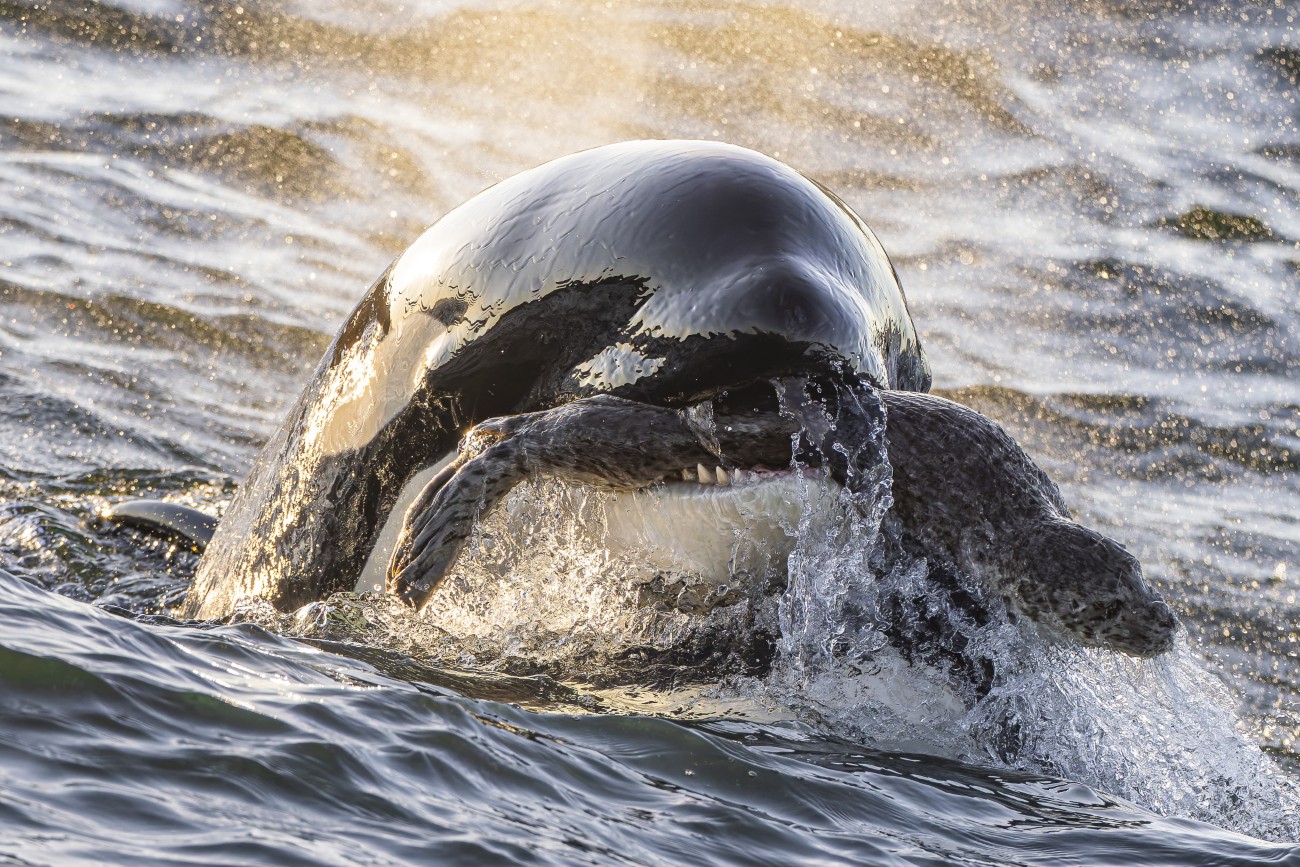
Yifan Ling, Runner-Up, Wildlife. Location: USA
A one-year-old Bigg’s orca catches a harbor seal. “At this age, orcas typically rely on milk,” Ling explains. “His skill highlights the Salish Sea’s richness, where harbor seals and orcas have rebounded thanks to the Marine Mammal Protection Act of 1972.”
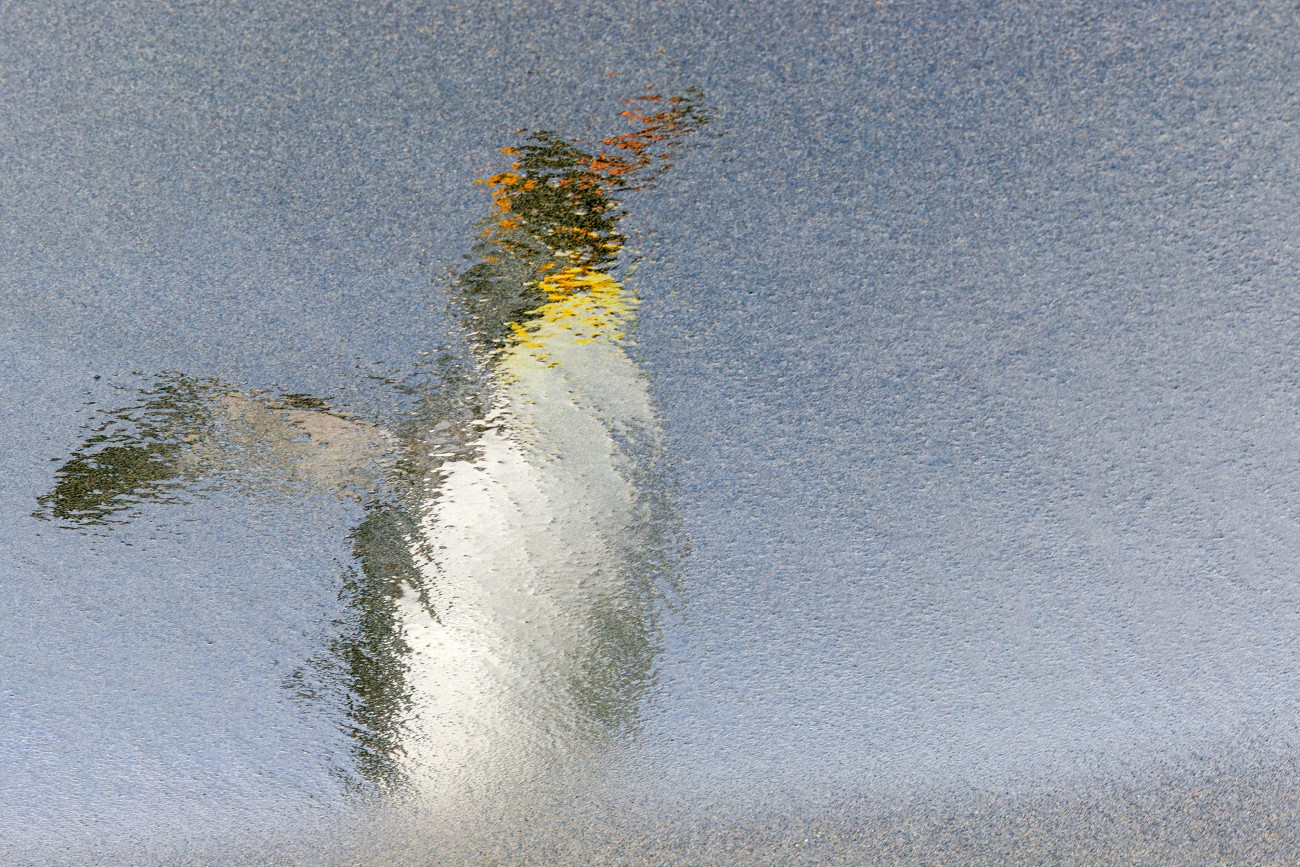
Rafael Armada, Runner-Up, Fine Art. Location: South Georgia Island
Reflections in the sand. “On my final morning on the island, I noticed how waves left behind ephemeral mirrors on the black sand,” says Armada. “When a penguin stood still and created a perfect reflection, I raised my camera instinctively.
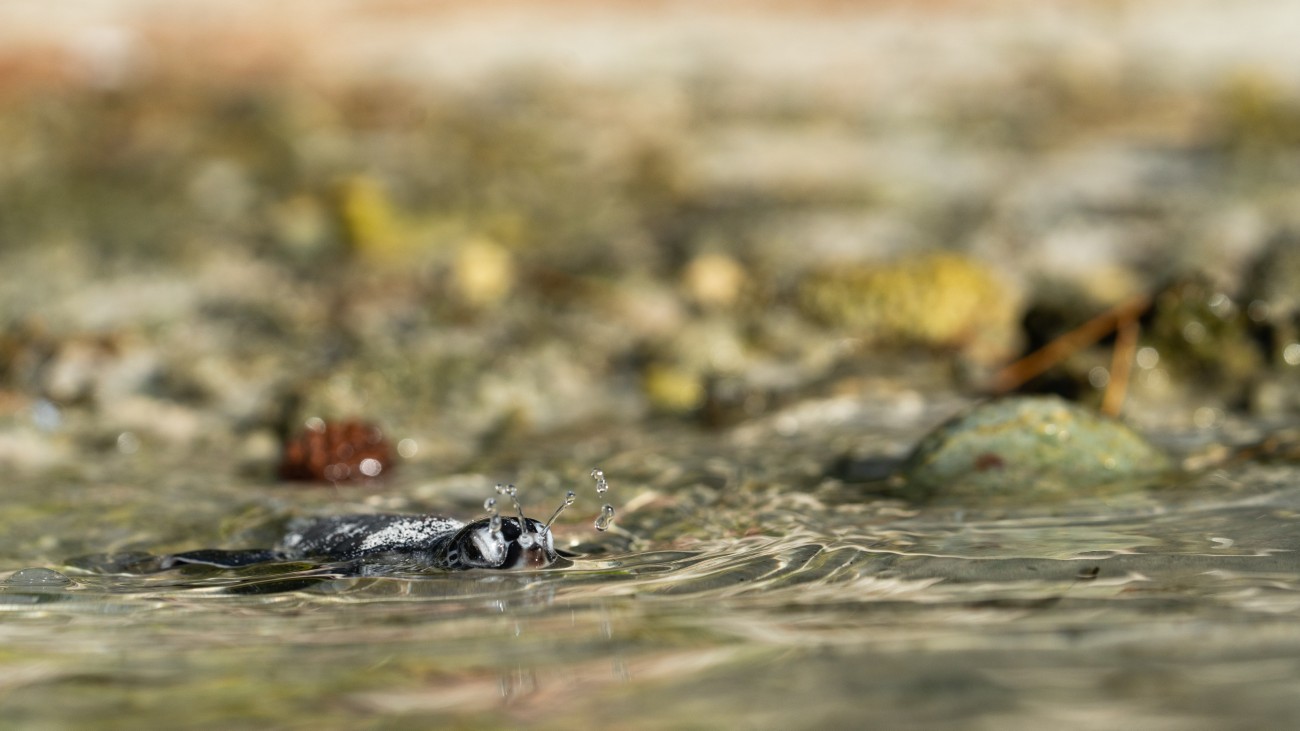
Théo Guillaume, Runner-Up, Young. Location: French Polynesia
A sea turtle hatchling releases a delicate jet of water from its nostrils. “Sea turtles breathe through their mouths, but expel water through their noses, even at this age,” says Guillaume.











































































